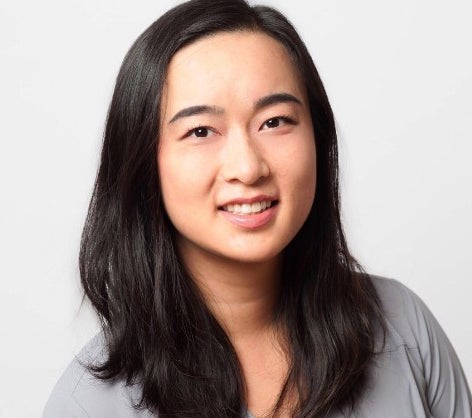Sophia Cao, RTB House’s newly appointed director of private advertising advocacy, knows how to play nice in the sandbox – because, well, she used to work there.
Cao moved to Ad Tech Land in May after nearly a decade at Google, including a two-year stint on the Privacy Sandbox partnerships team as a liaison to the sell side. She also spent roughly seven years as a revenue analyst and publisher consultant for Google Ad Manager.
So, why leave the nerve center for the perimeter? Cao doesn’t see it that way.
“While it was really cool to be at the epicenter of a major technological change,” she said, “I actually think I can make more of a business impact from outside of Google.”
By “major technological change,” Cao is, of course, referring to the deprecation of third-party cookies on Chrome.
“When you remove or change a foundational technology used by a multibillion-dollar industry, there will be winners, as in those that can make the most out of the transition,” she said. “RTB House stood out to me as one of those companies.”
Other than Criteo, RTB House was, until relatively recently, one of the only ad tech companies making a serious attempt to test the Chrome Privacy Sandbox APIs. That’s how Cao came across it in the first place.
“I remember seeing their name early on and thinking, ‘RTB House, who is that?’ I’ve never heard of them,” she said. “And then I saw the work they were doing in the Sandbox, including educating other companies about how the technology works, and it got me interested.”
Shortly after hiring Cao, RTB House made a second privacy-focused hire with a Google background. Before joining in May, Charles Simon, RTB House’s new VP of private advertising standards, held privacy engineering and governance roles at Nike and Google. Simon and Cao now work together on the same team.
I spoke with Cao roughly a month into her new job about how she plans to reduce friction between Google and the ad tech community and what she thinks of Criteo’s recent Privacy Sandbox tests.
AdExchanger: Does it feel weird being on, I’m not sure how else to put it, “the other side”? It’s been a little tense between ad tech vendors and the Chrome Privacy Sandbox team.
SOPHIA CAO: A big part of my role on the Sandbox partnership team was to work on fixing that friction. Although that was really daunting, it was also rewarding, because my job was to establish relationships with companies that historically had I don’t want to say adversarial but more so competitive dynamics with Google. I built trust with these companies.
I’m still very friendly and collaborative with the Google team, even though sometimes I now have to take a stance that isn’t necessarily the cheerleader position. But my role on the Privacy Sandbox team taught me how to exist in the gray, and I’m comfortable with it now.
Is “director of private advertising advocacy” a newly created title? What does it entail?
RTB House has been very engaged in the Sandbox conversations since the beginning, and it’s a very engineering-driven company. They created this role to have a dedicated, very intentional strategy resource to assess and understand how we should engage with all of the different stakeholders in the ecosystem.
They also wanted to offload some of the burden from the engineering team, because they’re really, really busy.
Can you share an example of what you’ve been up to?
One of the first exercises I did was to make a map, as exhaustive as possible, of all the potential stakeholders we could engage, including SSPs, other DSPs, Big Tech regulators, competition regulations, DPAs and trade bodies like Prebid and the IAB Tech Lab.
And then I broke it down by priority, as in, who do we most need to engage with, down to individual regulators. We’re starting to execute on that now.
RTB House has invested a lot of time, money and engineering resources into testing the Chrome Privacy Sandbox APIs over the course of years. Has it been worth it?
Testing gives us credibility. But it also gives us the ability to influence this technology, which is an existential thing for us. For example, we’ve submitted several proposals to the specs for the Protected Audience API.
What do you think of the results of Criteo’s recent Privacy Sandbox tests? Two of the main findings were that publisher revenue would dip by 60% if Chrome shut off third-party cookies today and that the Sandbox APIs give Google Ad Manager a big advantage.
We’re aware of a lot of these same dynamics. But to talk about what may happen if third-party cookies were to be shut off right now doesn’t reflect how we’re thinking about the problem.
For example, the supply side isn’t in the same place as GAM is at this point. GAM had a very large head start in occupying a lot of the Protected Audience inventory. If you take a snapshot in time today, they have an advantage. What we want is for the supply side to really ramp up their adoption.
Do you think the Privacy Sandbox APIs are ready for prime time?
What I’ll say is that we have some concerns we’d like to see addressed, but we’re also not interested in a long or longer delay. We do want to see this work.
Is there something about the Chrome team that people in the ad tech community don’t seem to realize or appreciate?
There is a degree of cynicism in the market, some of which is, perhaps, derived from Google’s past behavior. There are a lot of conspiracy theories out there. But the team is trying to – and they also know they have to – make this work for the third-party ecosystem.
This interview has been lightly edited and condensed.





















